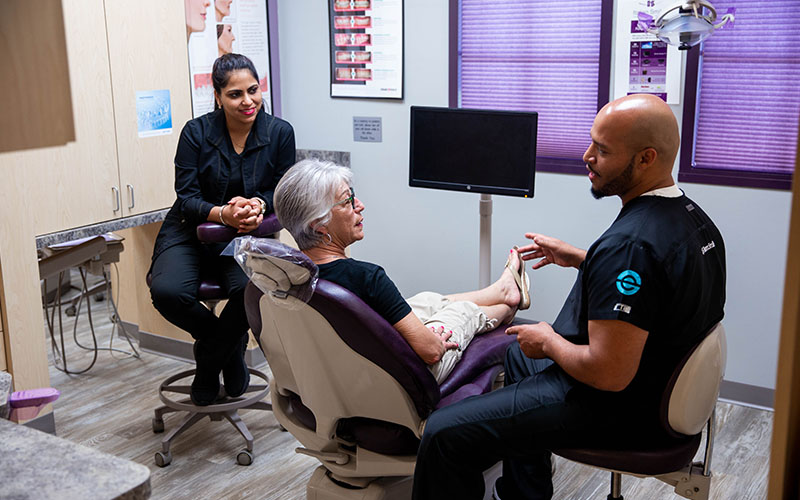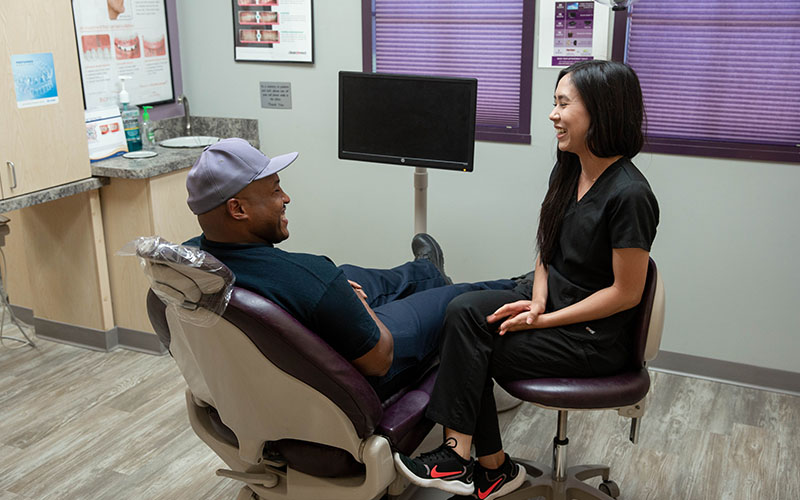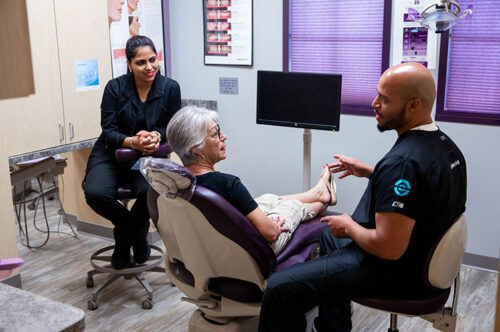What you Need to Know about Dental Anxiety
Dental anxiety is one of the most common fears in the world. Estimates show that nearly 75% of adults have some level of dental anxiety, which can range from mild uneasiness to full-blown panic attacks. In this article we’ll explore the different causes of dental anxiety, as well as ways to overcome it and enjoy a healthy smile for life!
One of the main causes of dental anxiety is fear of pain. Many people are afraid that visiting the dentist will be a painful experience and so they avoid it completely. Other common causes include fear of needles or drills, fear of gagging, or feeling embarrassed about one’s teeth.
Fortunately, there are many ways to combat dental anxiety and make your next visit to the dentist a more enjoyable experience. First, talk to your dentist openly about any fears you may have; they can help come up with strategies to minimize discomfort during treatment. Additionally, ask for numbing agents before procedures such as cavities fillings or cleanings if needed. Finally, try relaxation techniques like deep breathing or guided meditation in order to stay calm during appointments.

Dental anxiety doesn’t have to stop you from having a healthy, beautiful smile. With the right knowledge and strategies, dental anxiety can be managed and overcome. It’s important to remember that your dentist is there to help you with any concerns or fears you may have, so don’t hesitate to speak up!
- One of the main causes of dental anxiety is fear of pain. Fear of pain is usually due to memories of past traumatic dental experiences, or a fear of the unknown that may be associated with future treatments. To manage this type of anxiety, it’s important to talk openly to your dentist about any anxieties you may have and work together to create a plan for dealing with them. Your dentist may offer numbing agents before procedures such as fillings and cleanings to reduce discomfort, or suggest relaxation techniques such as deep breathing or guided meditation prior to treatment.
- Fear of needles or drills can also be a major source of anxiety for many patients. One way to address this fear is by speaking to your dentist about their sterilization protocols and learning more about the equipment they use in order to feel more comfortable during the procedure. If a patient still feels anxious after these conversations, they can ask their doctor for an alternative method such as using laughing gas or nitrous oxide during treatment instead.
- Another common cause of dental anxiety is feeling embarrassed about one’s teeth, whether due to dental trauma in the past or simply not having access to regular preventive care. In these cases, it’s important for patients to understand that there are solutions available and that their dentist is there to help them achieve healthier smiles no matter what condition their teeth might be in at present. Discussing options such as veneers, implants, crowns and other cosmetic treatments can help give patients hope and make them feel more comfortable when seeking out dentistry services.
- Finally, some people experience gagging reflexes while visiting the dentist which can lead to feelings of panic or dread when thinking about an upcoming appointment. To overcome this, practicing breathing exercises prior to an appointment is key; focusing on deep breaths will help activate muscles responsible for keeping airways open so that gag reflex isn’t triggered during treatment. Additionally, asking your dentist if they can administer a mild sedative prior to treatment could help reduce feelings of anxiety associated with gagging while also making it easier on the patient overall.

https://www.google.com/maps?cid=10725474417078119454

